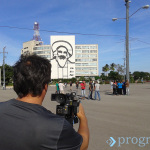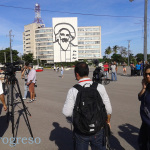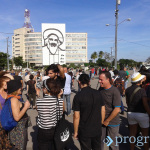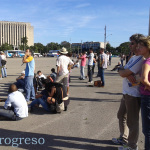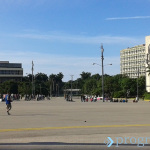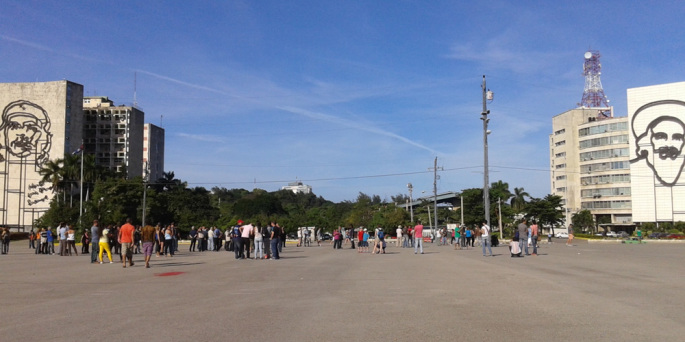
The tripping started
HAVANA — The “artistic” performance that Tania Bruguera had planned to stage on Tuesday (Dec. 30) in Revolution Square was the first of many tricks aimed at the process of normalization of diplomatic relations between the United States and Cuba, after Washington and Havana announced that intention on Dec. 17.
The time set for the event came and went and the Square remained as before, bathed in sunlight, with few visitors. In the distance, a group of the always large contingent of foreign journalists, waited for the event’s organizers, who never showed up. House detention and the detention of some of the activists who presumably would “act” in Bruguera’s performance froze a project that concealed a provocation.
Ever since the platform #Yotambienexijo announced the initiative, we could predict a scenario of confrontation and violence that could have had some very tough consequences.
Tania Bruguera, who arrived in Havana on Saturday (Dec. 27), had been asked by the National Council of Plastic Arts to move her performance into the National Museum of Fine Arts, a non-politicized space, but she did not accept that alternative.
What surrounded this “artistic act” — which attracted no ordinary people and was thwarted by the detention of dissident activists such as A. Rodiles, E. Ávila and R. Escobar — was a concentrated example of how complex political strategies will become, now that the direct confrontation between the two governments has allegedly ended and we enter the field of underhanded tactics.
To try to place a podium in one of the most symbolic spaces of the Cuban Revolution, without authorization and against the rules, and to try to make it a protest site — in the style of Tahrir Square in Egypt, Maidan Square in Ukraine or Occupy Wall Street in New York — sounds like an attempt at slapping the faces of the Cuban government officials and those leaders in Washington who are trying to change the brutal policy maintained for more than 50 years against Cuba.
The provocation sought repression, not true dialogue.
The island’s hierarchy now acts in the knowledge that the U.S. government modified the method — not the objective — of “regime change.”
Bruguera and her sponsors have achieved a few minutes of television time and some moments of “trending topic” in these festive year-end days. While doing so, they enabled many media to reaffirm the image of the country’s authorities as people who limit freedom of expression.
That is why dissident blogger Yoani Sánchez congratulated the Bruguera woman this afternoon, saying that “I told her that part of her performance was accomplished by the disclosure of censorship.”
Only a few days after inaugurating this new stage in bilateral relations, the Cuban government faces the same problems: How to ensure governability and sovereignty in the face of such a powerful enemy? How to deal with the desire for and right to free expression of any Cuban?
This saga is just starting. It is very likely that skirmishes like this will recur. And we’ll have to try new kinds of responses that tend to alleviate hostility and broaden the margins of tolerance for all the participants, so long as the game is fair.
Today was a lamentable day when anger reigned. As this article is written, Tania Bruguera has not appeared. The activists are beginning to call for her. And there’s the impression that another circle of ambiguities, opacities and distortions is opening. That’s just what the Cuban people do not deserve, at the dawn of a New Year that should be a haven of peace.
Pictures made on Revolution Square on Tuesday, Dec. 30, at 3 p.m.

